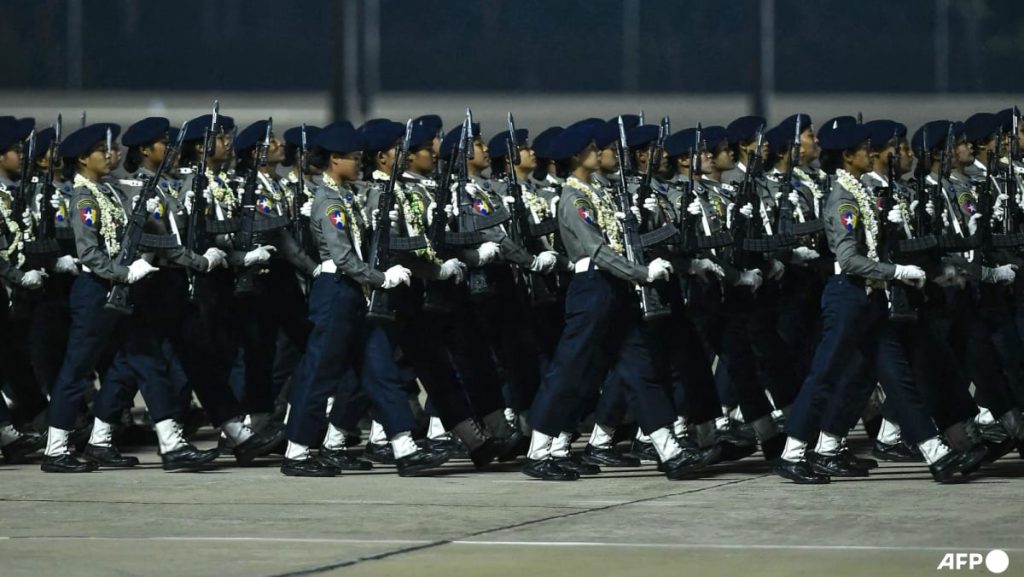The junta in Myanmar has been unable to hold fresh elections as planned due to alleged terrorist acts by its opponents. The National Defence and Security Council, consisting of junta members, unanimously decided to extend the state of emergency for another six months to prepare for the election that is promised to be held in 2025. A population census and continuing work implementation were also cited as reasons for the extension. According to the military-drafted constitution, fresh elections are required to be held within six months of lifting a state of emergency.
The military seized power following the 2020 elections, alleging fraud despite the National League for Democracy winning in a landslide. The state of emergency has been extended multiple times as the junta battles ethnic minority armed groups and pro-democracy “People’s Defence Forces.” Recent battlefield defeats to an alliance of ethnic minority armed groups in the north and west of the country have been detrimental to the junta. The Myanmar National Democratic Alliance Army claimed to have seized the town of Lashio, a vital trade link to China and home to the military’s northeastern command, which was denied by the junta. Losing territory to armed groups has weakened the junta in recent weeks.
The junta chief, Min Aung Hlaing, proposed the extension of the state of emergency to ensure valid and accurate ballots for the promised election. The population census and ongoing work implementation were also cited as reasons for extending the state of emergency for an additional six months. Despite the initial plan to hold fresh elections, the junta’s focus has shifted towards dealing with opposition from both established ethnic minority armed groups and newer pro-democracy forces, resulting in the need for continued emergency measures.
The state of emergency extension and delay in holding fresh elections have raised concerns about the junta’s commitment to a democratic transition. The junta’s assertion that the 2008 military-drafted constitution is still in force has been met with skepticism by critics and pro-democracy groups. The continued suppression of opposition voices and the mounting battlefield defeats have further fueled unrest and resistance against the military regime, both domestically and internationally.
The loss of territory and strategic locations such as Lashio to ethnic minority armed groups have exposed the junta’s vulnerabilities and the challenges it faces in maintaining control. The junta’s escalating conflict with armed groups and pro-democracy forces has led to a cycle of violence and instability in Myanmar, causing humanitarian crises and displacements. The junta’s inability to effectively confront these challenges and facilitate a peaceful transition to democracy has drawn condemnation and sanctions from the international community, further isolating the regime.
As the junta extends the state of emergency to consolidate power and prepare for the promised election in 2025, the future of Myanmar remains uncertain. The junta’s authoritarian rule and violent suppression of dissent have sparked widespread opposition and resistance, leading to a protracted conflict with armed groups and pro-democracy forces. The junta’s efforts to maintain control through emergency measures and propaganda have only deepened divisions and exacerbated the humanitarian crisis in the country. Only through genuine dialogue, reconciliation, and a commitment to democratic principles can Myanmar hope to overcome its current challenges and build a more stable and inclusive future for all its citizens.


